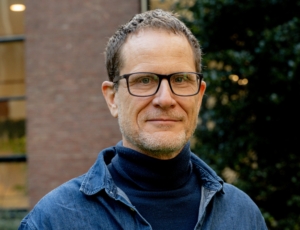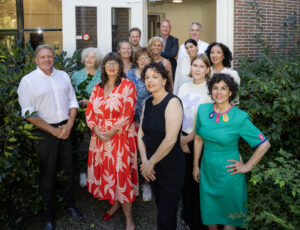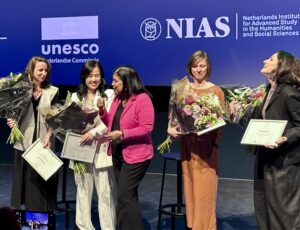Henk Barendregt, Professor of Foundations of Mathematics and Computer Science at Radboud University Nijmegen, wins the fourth Distinguished Lorentz Fellowship. At NIAS, Barendregt will explore the discrepancy between human perception, commonly perceived as continuous, versus the actual discrete underlying mechanisms. This will also be the topic of his interdisciplinary workshop at the Lorentz Center.
Human perception is often experienced as continuous and holistic but the underlying fundamental mechanisms are in fact discrete and compartmentalized. These underlying mechanisms may become unexpectedly visible in people suffering from stress or other psychological conditions. On the other hand vipassana meditation and other phenomenological methods intentionally investigate these boundaries of perception. Becoming aware of the fundamental mechanisms often feels unfamiliar and strange in comparison to common day-to-day experience and can induce aversion and avoidance.
A common biological response to counteract unnerving modes of perception seems to consist of producing neuromodulators, such as beta-endorphin, that suppress awareness of the fundamental mechanism. However, this biological response comes at a price, as these opiate-like substances are associated with behavioural addiction. A more flexible protective mechanism consists of developing ‘mindfulness’, consisting of an instantaneous helicopter view of our mental phenomena. Training this mind-state enables people to domesticate mentioned aversion and avoidance reactions, so that they can live a more harmonious life.
As Distinguished Lorentz Fellow at NIAS, Barendregt will study the discrepancy between perception and its mechanism and perform experimental studies to investigate the claim that discrete mechanisms of perception are observable, as well as explore the stabilizing effect of mindfulness training.
The international workshop at the Lorentz Center will bring cognitive neuroscientists, psychiatrists, psychologists, and mindfulness trainers together to exchange ideas about the main topic.
The Distinguished Lorentz Fellowship is awarded to eminent researchers who can bridge the gap between the Humanities, the Social Sciences and Natural Sciences. Successful research projects are both interdisciplinary and socially relevant. The Distinguished Lorentz prize of €10,000 is awarded by the Chair of the Lorentz Board Alexander Rinnooy Kan. The Fellowship is an initiative of NIAS and the Lorentz Center and is supported by the KNAW.
The Distinguished Lorentz Fellowship Award 2012/13 by Rinnooy Kan will be held on 27 March 2012 at NIAS



